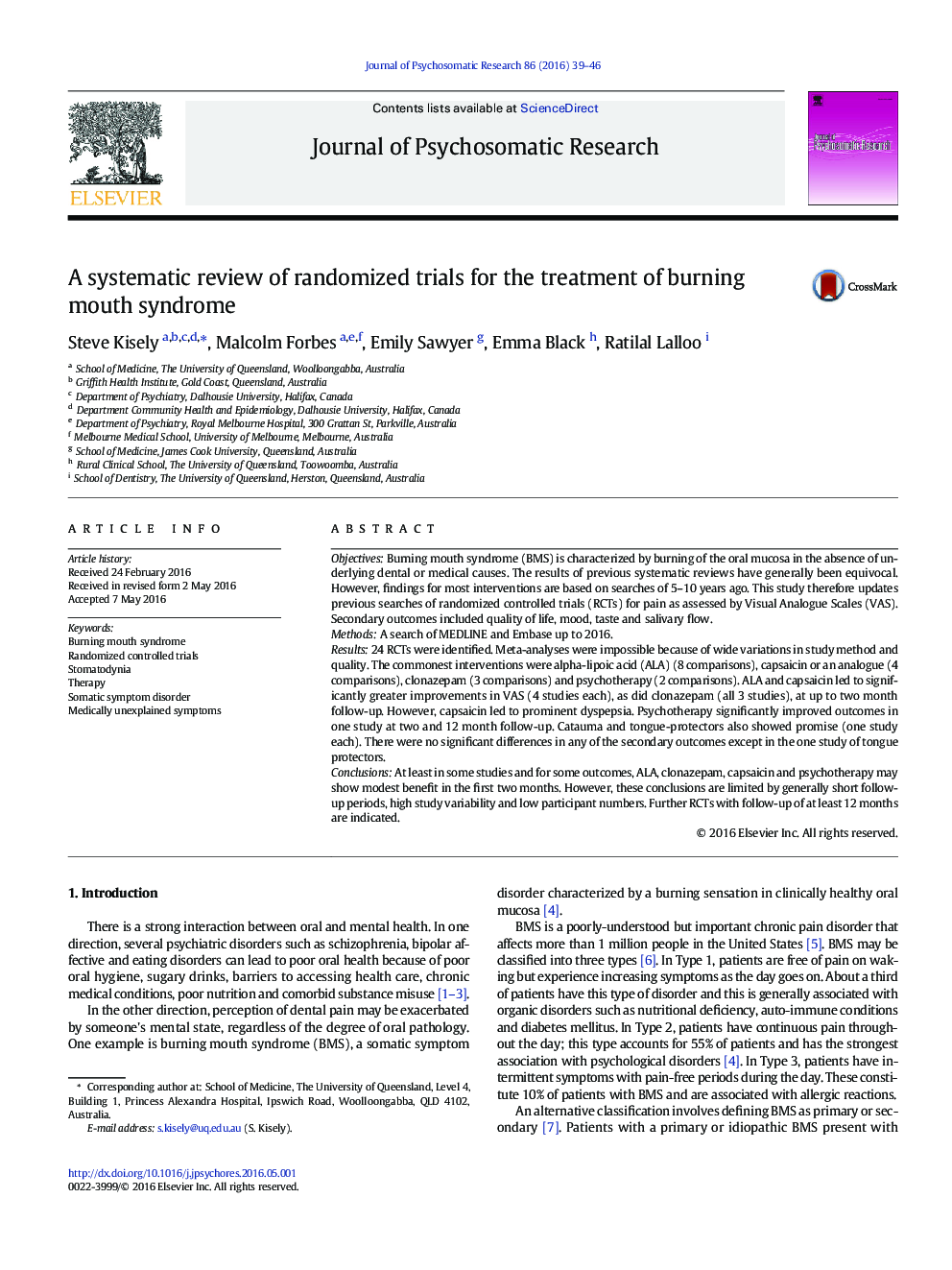| کد مقاله | کد نشریه | سال انتشار | مقاله انگلیسی | نسخه تمام متن |
|---|---|---|---|---|
| 949126 | 1475909 | 2016 | 8 صفحه PDF | دانلود رایگان |
• BMS is a poorly-understood chronic pain disorder that affects up to 15% of people.
• The results of previous systematic reviews have generally been equivocal.
• Alpha-lipoic acid, capsaicin & clonazepam show modest benefit in the 1st two months.
• Psychotherapy resulted in significant improvement in one study.
• Conclusions are limited by study quality, short follow-up and low power.
ObjectivesBurning mouth syndrome (BMS) is characterized by burning of the oral mucosa in the absence of underlying dental or medical causes. The results of previous systematic reviews have generally been equivocal. However, findings for most interventions are based on searches of 5–10 years ago. This study therefore updates previous searches of randomized controlled trials (RCTs) for pain as assessed by Visual Analogue Scales (VAS). Secondary outcomes included quality of life, mood, taste and salivary flow.MethodsA search of MEDLINE and Embase up to 2016.Results24 RCTs were identified. Meta-analyses were impossible because of wide variations in study method and quality. The commonest interventions were alpha-lipoic acid (ALA) (8 comparisons), capsaicin or an analogue (4 comparisons), clonazepam (3 comparisons) and psychotherapy (2 comparisons). ALA and capsaicin led to significantly greater improvements in VAS (4 studies each), as did clonazepam (all 3 studies), at up to two month follow-up. However, capsaicin led to prominent dyspepsia. Psychotherapy significantly improved outcomes in one study at two and 12 month follow-up. Catauma and tongue-protectors also showed promise (one study each). There were no significant differences in any of the secondary outcomes except in the one study of tongue protectors.ConclusionsAt least in some studies and for some outcomes, ALA, clonazepam, capsaicin and psychotherapy may show modest benefit in the first two months. However, these conclusions are limited by generally short follow-up periods, high study variability and low participant numbers. Further RCTs with follow-up of at least 12 months are indicated.
Journal: Journal of Psychosomatic Research - Volume 86, July 2016, Pages 39–46
